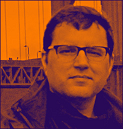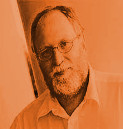 |
Lance Spitzner has over 20 years of security experience in cyber threat research, awareness and training. He invented the concept of honeynets, founded the Honeynet Project and has published three security books. Lance has worked and presented in over 25 countries and helped over 350 organizations plan, maintain and measure their security awareness programs. In addition, Lance is a serial tweeter (@lspitzner), avid blogger and works on numerous community security projects. Before working in information security, Mr. Spitzner served as an armor officer in the Army’s Rapid Deployment Force and earned his MBA from the University of Illinois. |
 |
Guillaume Arcas Guillaume Arcas has been a member of the Honeynet Project’s French Chapter since 2010. He has been working in security since – initially as a Security and Network Analyst, primarily in the Internet and Banking industries. He currently works for Sekoia CERT as a team leader specializing in Digital Forensics and Incident Response. When not hunting for endangered species hanging on the Internet, Guillaume enjoys reading (thrillers, science fiction, history, and philosophy – in no particular order as long as it is printed) and walking his dog. He also nourishes a certain nostalgia for the esheep.exe software – hence his Twitter avatar (@y0m). |
 |
Max Kilger, Ph.D. is a Senior Lecturer in the Department of Information Systems & Cyber Security at the University of Texas at San Antonio (UTSA). Dr. Kilger received his Ph.D. in Social Psychology from Stanford University. He has over fifteen years of experience in the area of information security concentrating on the social and psychological factors motivating malicious online actors, hacking groups and cyberterrorists. Max has written and co-authored a number of journal articles and book chapters on profiling, the social structure of the hacking community, cyberviolence and the emergence of cyberterrorism. He recently co-authored the popular book Reverse Deception: Organized Cyberthreat Counter-Exploitation and is working with his co-authors on his second book Deception in the Digital Age. He is a member of the board of directors at the Honeynet Project, a not-for-profit information security organization with 54 teams of experts in 44 countries working for the public good. Max was a member of a National Academy of Engineering committee dedicated to make recommendations for combating terrorism. He is also a member of an instructional team for a NATO counterterrorism course. |
 |
Raffael Marty is one of the world’s most recognized authorities on security data analytics and visualization. Raffy is the founder and CEO of pixlcloud, a next generation visual analytics platform. With a track record at companies including IBM Research and ArcSight, he is thoroughly familiar with established practices and emerging trends in big data analytics. He has served as Chief Security Strategist with Splunk and was a co-founder of Loggly, a cloud-based log management solution. Author of Applied Security Visualization and frequent speaker at academic and industry events, Raffy is a leading thinker and advocate of visualization for unlocking data insights. For more than 14 years, Raffy has worked in the security and log management space to help Fortune 500 companies defend themselves against sophisticated adversaries and has trained organizations around the world in the art of data visualization for security. Zen meditation has become an important part of Raffy’s life, sometimes leading to insights not in data but in life. |
 |
Christian Seifert has been a long time member of the Honeynet Project. Initial research focus has been client honeypots. In recent years, Christian’s interest has shifted to data mining in the security space; among other things to build reputation systems and finding interesting attack techniques and activities in data. Christian currently works at Microsoft Malware Protection Center as a Security Researcher. |
 |
Golden G. Richard III is a digital forensics and computer security expert and a Fellow of the American Academy of Forensic Sciences, with over 35 years of experience in computer systems and computer security. He is Professor of Computer Science, University Research Professor, and Director of the Greater New Orleans Center for Information Assurance (GNOCIA) at the University of New Orleans, where he has taught and conducted research for the past 20 years. His first floppy drive cost $600 and required financing. Golden is also the owner of Arcane Alloy, LLC, a private digital forensics firm and a professional music photographer. |
 |
Ryan Smith has been a member of The Honeynet Project and a security researcher for nearly 15 years. During this time he has presented his research and advocated honeypot technologies at various conferences and workshops around the world. Recent topics he’s presented were: nation-state mobile malware, identifying malware spreading by Twitter bots, Russian mobile fraud networks, and large scale Android app analysis. His current research includes mobile malware analysis, threat intelligence, and building large scale analysis platforms, and he is currently working at Blue Coat as a senior security R&D engineer. Fun fact: Ryan is also one of the proud native Texan’s in the Honeynet project and joined while he was a student at The University of Texas in Austin. |
 |
Kara Nance is a Professor of Computer Science and the founder of Security Works, a computer security consulting firm. Her research interests include digital forensics, data systems, security fundamentals, visualization, and computer security. She serves on the Honeynet Project Board of Directors and is a frequent speaker on cybersecurity and associated issues with an emphasis on national security. |
 |
Lukas Rist is a software engineer with Blue Coat Norway, developing the behavioral malware analysis and back-end systems used to create an extensive threat intelligence collection. Whenever that is not |
 |
David Watson is the Chief Research Officer of the 501c3 non-profit Honeynet Project, helping to co-ordinate the development and deployment of honeynet related security tools worldwide, and has also been a Director for most of the past decade. He has been a member of the Shadowserver Foundation since 2008, is one of their Directors, and has build and operated large scale distributed honeynet sensor systems for them. David regularly presents and teaches hands on training classes at international information security events, and is passionate about helping network owners and cybercrime victims to defend themselves using tools and information sources that do not necessarily come with huge price tags. |
 |
Nicole Lang Beebe is an Associate Professor in the Department of Information Systems & Cyber Security, at the University of Texas at San Antonio (UTSA). UTSA a National Center of Academic Excellence in Information Assurance and Cyber Defense for both education and research, with a certified Focus Area in Digital Forensics. Dr. Beebe received her Ph.D. in Information Technology from UTSA, an M.S. degree in Criminal Justice from Georgia State University, and a B.S. degree in Electrical Engineering from Michigan Technological University. She has over fifteen years of experience in information security and digital forensics, from both the commercial and government sectors. She was a computer crime investigator for the Air Force Office of Special Investigations from 1998-2007. She has been a Certified Information Systems Security Professional (CISSP) since 2001, is a licensed private investigator in the state of Texas, and holds three professional certifications in digital forensics (CCFP, EnCE, and ACE). She has published several journal articles related to information security in digital forensics in IEEE Transactions of Information Forensics and Security, Decision Support Systems, Digital Investigation, and others. Her research interests include digital forensics, computational forensics, information security, and data analytics. |
 |
Alvaro Cardenas is an Assistant Professor at the Department of Computer Science at the University of Texas at Dallas, where he is a member of the Cyber Security Research and Education Institute. He holds M.S. and Ph.D. degrees from the University of Maryland, College Park. Before joining UT Dallas he was a postdoctoral scholar at the University of California, Berkeley, and a research staff at Fujitsu Laboratories of America in Sunnyvale California. |
 |
Kevin Owens earned his BSEE from the University of Illinois at Chicago in 1994. After graduation, he entered the electric power industry, most recently joining Schweitzer Engineering Laboratories, Inc. (SEL) in 2014 as a senior research engineer. Kevin’s interest in computer security dates to the late 1970s. His current area of focus is the defense of industrial control systems (ICS) from cyber threats. |
 |
Jose Miguel Esparza is a Security Researcher who has been working as a Threat Analyst since 2007, focused on botnets, malware and threat actors. After working at S21sec e-crime for several years, he joined Fox-IT in The Netherlands, where he is currently leading the InTELL team. He is the author of peepdf and he also writes on eternal-todo.com about security and threats in Internet if time permits. He has taken part in several local and international conferences like RootedCon, Source, Black Hat, Troopers and Botconf, among others. You can easily find him on Twitter, @EternalTodo, talking about security. |
 |
Robert M. Lee is the CEO and Founder of Dragos Security LLC which creates the critical infrastructure cyber situational awareness software CyberLens. Robert is a SANS Certified Instructor, the course author of SANS ICS515 – ‘Active Defense and Incident Response’, and the co-author of SANS FOR578 ‘Cyber Threat Intelligence’. He is also a non-resident National Cyber Security Fellow at New America focusing on policy issues relating to the cybersecurity of critical infrastructure, and a PhD candidate at Kings College London. For his research and focus areas, he was named one of Passcode’s Influencers and awarded EnergySec’s 2015 Cyber Security Professional of the Year. Rob was also named to the 2016 class of Forbes ’30 Under 30′ for Enterprise Technology as one of ‘the brightest entrepreneurs, breakout talents, and change agents’ in the sector. Robert obtained his start in cybersecurity serving as a Cyber Warfare Operations Officer in the U.S. Air Force. He has performed defense, intelligence, and attack missions in various government organizations including the establishment of a first-of-its-kind ICS/SCADA cyber threat intelligence and intrusion analysis mission. Robert routinely writes articles in publications such as Control Engineering and the Christian Science Monitor’s Passcode and speaks at conferences around the world. Lastly, Robert, is author of the book ‘SCADA and Me’ and the weekly web-comic Little Bobby. |

